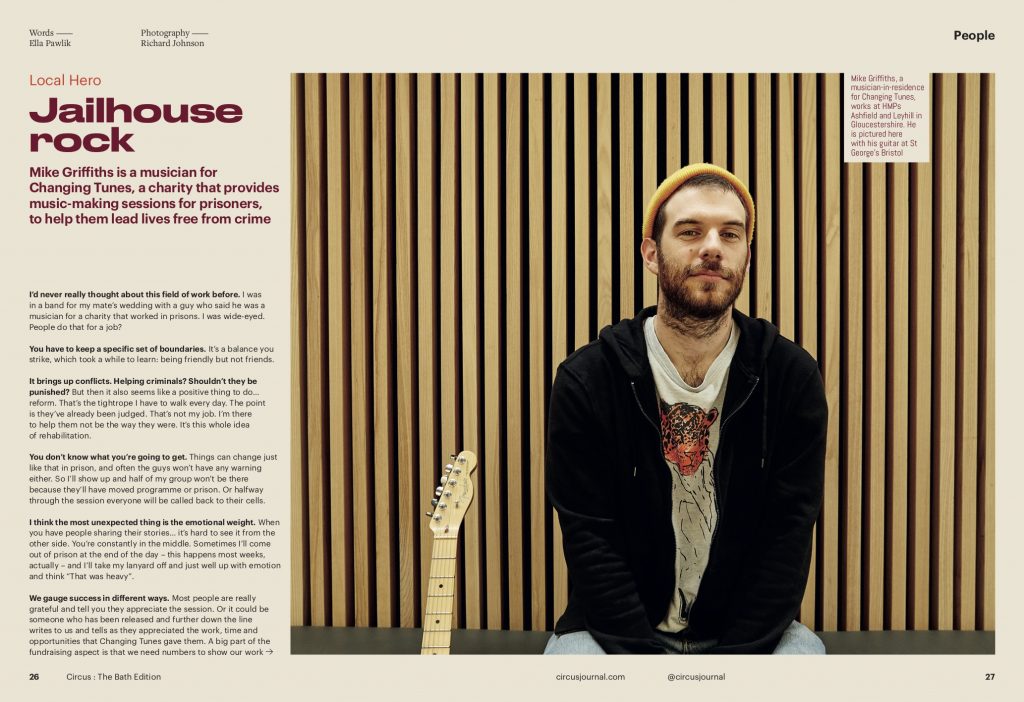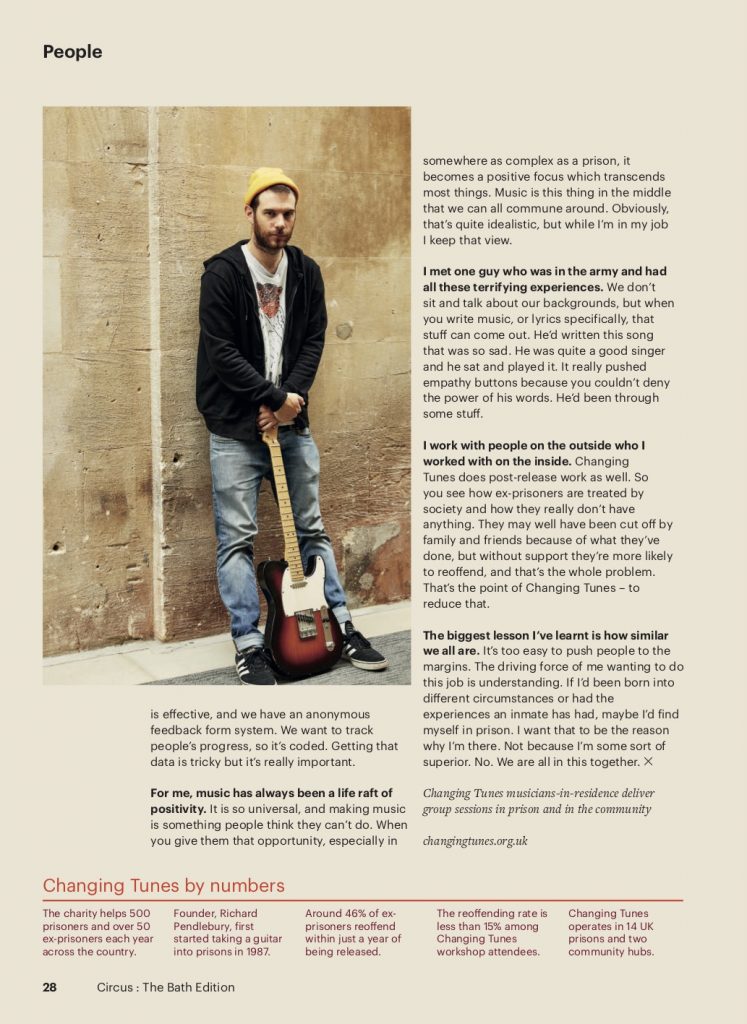Changing Tunes
Published in Circus Journal


I’d never really thought about this whole field of work before. I was in a band for my mate’s wedding with a guy who said he was a musician for a charity that worked in prisons. I was wide eyed. People do that for a job?
You have to keep a very specific set of boundaries. It’s a balance you strike, which took a while to learn: being friendly but not friends.
It brings up conflicts. Helping criminals? Shouldn’t they be punished? But then it also seems like a positive thing to do…reform. That’s the tightrope that I have to walk every day.
The whole point is they’ve already been judged. That’s not my job. I’m there to help them not be the way they were. It’s this whole idea of rehabilitation.
You don’t know what you’re going to get. Things change like ‘that’ in prison, and often the guys wont have any warning either. So I’ll show up and half of my group wont be there because they’ll have moved program or prison. Or halfway through the session everyone will be called back to their cells.
I think the most unexpected thing was the emotional weight. When you have people share their stories, and victims too…it’s hard to see it from the other side. You’re constantly in the middle.
Sometimes I’ll come out of prison at the end of the day – this happens most weeks actually – and I’ll take my lanyard off and I’ll well up with emotion and just think ‘That was heavy today’.
We gauge success in different ways. Most people are really grateful and tell you they appreciate the session. Or it could be someone who has been released and further down the line writes to us and tells as they appreciated the work, time and opportunities that Changing Tunes gave them.
A big part of the fundraising aspect is that we need numbers to show our work is effective, and we have an anonymous feedback form system. We want to track people’s progress so it’s coded. Getting that data is really tricky but it’s really important.
For my life, for myself, music has always been a life raft of positivity. Music is so universal and the opportunity to make it is something people think they can’t do. When you give them that opportunity, especially in somewhere as complex as a prison, it becomes this amazing positive focus and transcends most things.
It’s this great big thing in the middle, music is this thing in the middle that we can all commune around. And obviously, that’s quite an idealistic view but while I’m in my job I keep that view.
I had one guy who was in the army and had all these terrifying experiences. We don’t sit and talk about our backgrounds but when you write music, or lyrics specifically, that stuff can come out. He’d written this song that was so sad. He was quite a good singer and he sat and played it. It really pushed empathy buttons in the whole circle because you couldn’t deny the power of his words. He’d been through some stuff.
I work with guys on the outside who I also worked with on the inside. Changing Tunes does post-release work as well. So you see how ex-prisoners are treated by society and how they really don’t have anything. They may well have been cut off by family and friends because of what they’ve done, but without support they’re more likely to reoffend and that’s the whole problem. That’s the point of Changing Tunes – to reduce that.
The biggest lesson I’ve learnt is how similar we all are. It’s too easy to push people to the margins.
The driving force of me wanting to do the job is understanding. “There but for the grace of God, go I’. If I’d been born into different circumstances or I had experiences an inmate has had, maybe I’d find myself in prison. I want that to be the reason why I’m there. Not because I’m some sort of superior. No. We are all in this together.